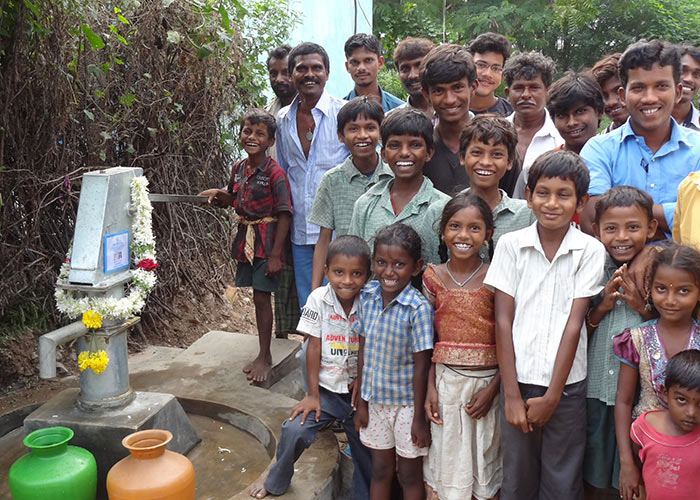Employees and consumers are becoming increasingly invested in giving back. Here’s a look at the top companies excelling in CSR
As newer generations enter the workforce, their ever-evolving priorities continue to impact how executives shape their business model. From parental leave to flexible in-office hours, the relationship between employees and the companies they work for is changing.
These shifting employee values impact the relationship between companies and consumers. Now more than ever, customers and employees prefer to invest money and talent in businesses that align with their values.
Corporate social responsibility (CSR) has seen a massive upswing in popularity and is now the focal point for corporate community initiatives.
What is Corporate Social Responsibility (CSR)?
CSR is comprised of initiatives addressing and alleviating environmental and societal issues important to a company’s mission, purpose, and the surrounding community.
According to Reputation Institute, the best CSR model meets three main requirements: a fair and healthy workplace, conscientious citizenship that displays social and environmental responsibility, and a transparent governance with fair and ethical practices.
“For an organization, having a strong CSR agenda is important because it ensures customers will do business with it, policymakers and regulators will give it license to operate, and potential employees will be more willing to work for it. CSR is increasingly a top driver of stakeholder support. It equates to goodwill and good business,” said James Bickford, Managing Director at the Reputation Institute.
A study conducted by NYU and Imperative indicates that Bickford is accurate to give such value to CSR. According to the study, purpose-oriented employees remain with their employers 20 percent longer than other companies. It also found that employees are 47 percent more likely to be engaged promoters of their employer when a CSR initiative is implemented.
Furthermore, a study conducted by Reputation Institute reflects an increase in customers who value ethics. Over 47,000 consumers across 15 markets were invited to participate in ranking the world’s 100 most reputable companies. The study found that a company’s CSR influenced 42 percent of consumer perception.
It’s clear that both employee and customer loyalty have become heavily influenced by the quality of a company’s CSR, and the assurance that their time and money will go to a business that will do some good by giving back. Here is a list of some top companies whose CSR stands out.
People Water
Water is a scarce resource in many parts of the world. Thanks to People Water’s CSR “Drop for Drop” initiative, more than 5.7 million gallons of clean water have been provided for people in need. The initiative is designed so that clean water projects are funded by bottled water sales. The projects range from building or repairing wells to establishing water purification systems in areas with poor water quality.
“Drop for Drop” allows consumers to contribute to the provision of clean water—an essential resource for survival—and a chance to live a better life. Additionally, People Water is helping to fix 800,000-plus wells in need of repair to ensure they will remain sustainable for years to come.
Harmless Harvest
Harmless Harvest’s mission is for clean, organic food and beverages to leave no negative impact on the planet. Consumers have a heightened awareness of the fight for human labor rights around the globe.
Because of this, it has become increasingly vital for companies to address the issue through CSR efforts. Harmless Harvest has joined the fight for ethical labor laws by ensuring that all people involved in creating their products are treated fairly.
This food and beverage company describes itself as a proud “ecosystem-based business” because of how seriously it takes the mission of being conscientious and fair to every entity involved. Even if the process takes longer or is more difficult, their strategy is to ensure both people and the planet are the priority.
Do Good Buy Us
The internet is overflowing with e-commerce websites, making it easy and convenient to shop online. Within the online retail industry, there is one company that stands out, not only for their mission to sell goods that do good, but for their commitment to social causes.
Do Good Buy Us is an e-commerce website that focuses on changing consumerism by carrying products for retail that support social causes. Do Good Buy Us commonly offers products made by nonprofit groups and charity partners.
“From tea to t-shirts, from rain boots to coffee, from jewelry to soaps, the list of amazing products goes on,” said Zack Rosenberg, Founder of Do Good Buy Us. “Our mission is to create social good through great products.”
The website gives a platform to all sorts of causes such as animal welfare groups, education initiatives, art and culture programs, health programs, environmental organizations, and women’s causes.
Accessibility Partners
Technology has worked its way into our everyday lives, particularly in the workplace. For those with disabilities, using computers, tablets, or cellphones can present significant challenges. Accessibility Partners integrated CSR into its business model to strengthen relationships with customers—such as government agencies, public and private IT manufacturers, and organizations of all sizes.
Its goal is to make information technology accessible for individuals with disabilities. The distinctive solutions address the specific needs of each customer and provide products that accommodate.
The company’s staff has a combined 60 years of experience in accessibility and are known for their broad industry expertise. Additionally, over 70 percent of the company’s employees have disabilities as well. The company promotes disability advocacy across all of its operations.
IBM
IBM is dedicated to CSR, and Citizen IBM allows it to encourage both discussion and action on community involvement. Citizen IBM aims to address social issues such as education, disaster relief, economic development, diversity, and global health. The company’s combat these social issues by using “applied technology, continuous transformation, and sustainable change.”
Employees and volunteers are encouraged to donate their time, talent, and technology to impact communities across the world. For instance, IBM’s World Community Grid (WCG) allows anyone with a smartphone, tablet, or computer to donate their unused computing power to advance scientific research.
Such efforts have contributed to the scientific advancement of health, sustainability, and poverty. So far, WCG has supported 29 research projects, with some aimed at finding more effective treatments for HIV/AIDS, cancer, and neglected tropical diseases.
Aflac
Aflac has been named one of Fortune’s 100 Best Companies to Work For 19 years in a row.
The company has made it their mission to weave high-quality CSR into their work culture. Aflac employees have taken part in efforts such as donating more than $118 million to support cancer patients, volunteering to build a home for a family in need, and contributing to the better treatment of our environment.
Their efforts have not just remained within the company, Aflac’s strategy invites public participation. For example, the Aflac Duckprints program donated $1.5 million in 2016 to childhood cancer treatment and research.
The program committed to donating $2 for every tweet, Instagram post, or Facebook post that included the hashtag #Duckprints—over 900,000 people participated. Such efforts not only raise much-needed funds but societal awareness as well.
Cisco
Cisco’s CSR programs focus on “investing in local communities to solve global challenges” by addressing four global needs: access to education, connected healthcare, economic empowerment, and disaster relief. Cisco has a strong focus on optimizing the distribution of emergency goods to areas affected by natural disasters.
Cisco’s Tactical Operations team aims to swiftly reestablish communication that has been compromised by a natural disaster.
Additionally, its global programs teach people how to succeed in today’s technology-driven society. Cisco uses technology to make healthcare and technology more easily accessible to those in need.
3M
With its 90,000 employees and their program 3MGives, 3M “improves lives around the world” with its CSR efforts. In 2016, the company’s 3MGives program raised $67 million to fund community, educational, and environmental initiatives.
The company also established a Global Relief Fund to “strategically support communities currently affected, and to position funds for future relief efforts.” The relief fund is now worth $3.5 million and has had over $2.1 million in product donations.
Another example of their dedication to impacting the community through CSR can be seen in their educational initiatives, which are focused on boosting student interest in science and technology. One of their programs, the Discovery Education 3M Young Scientist Challenge, inquires for students between fifth and eighth grade to create innovative solutions to everyday problems. The ten finalists are then offered the chance to be mentored by a 3M scientist during their summer break.
CSR has clearly become a vital part of a successful business model. Companies that find ways to use their resources optimally have shown how much impact can truly be made on a worldwide scale. Not only does strong CSR improve a company’s reputation and stakeholder support, but it demonstrates that its leadership is also actively engaged in CSR.
Article Source: BOSS Magazine



